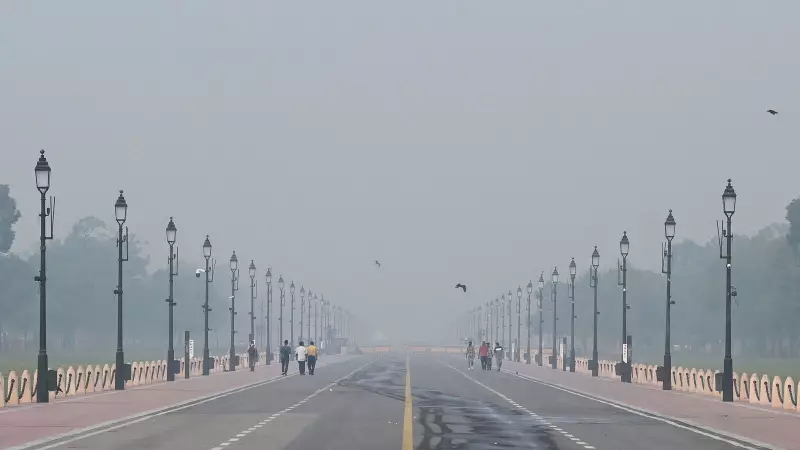
As Delhi's air quality plunges to hazardous levels, creating a public health emergency, medical experts are sounding the alarm about the urgent need for protective measures. Dr. Randeep Guleria, former Director of AIIMS Delhi and renowned pulmonologist, has stepped forward with critical advice to help citizens navigate this toxic environment.
The Invisible Threat: Understanding Delhi's Air Quality Crisis
Delhi's Air Quality Index (AQI) has consistently registered in the 'severe' category, with particulate matter levels reaching alarming concentrations. Dr. Guleria emphasizes that this isn't just visible smog but contains microscopic pollutants that penetrate deep into our respiratory system and bloodstream.
Essential Protective Measures Recommended by Dr. Guleria
1. Mask Up Correctly: The N95 Imperative
Not all masks provide adequate protection. Dr. Guleria stresses that standard cloth masks offer minimal defense against fine particulate matter. "Only N95 or equivalent respirators can effectively filter out the dangerous PM2.5 particles," he explains. Proper fit is crucial – the mask must seal tightly against your face.
2. Monitor AQI Religiously
Make checking the Air Quality Index part of your daily routine. "Use reliable AQI monitoring apps and websites before planning outdoor activities," advises Dr. Guleria. When AQI crosses 400 (severe category), limit all unnecessary outdoor exposure.
3. Create Safe Indoor Havens
Your protection strategy shouldn't end at your doorstep. "Invest in good quality air purifiers for your home, especially in bedrooms," recommends the former AIIMS chief. Keep windows closed during peak pollution hours and consider adding indoor plants that naturally purify air.
Special Precautions for Vulnerable Groups
Children, elderly individuals, pregnant women, and those with pre-existing respiratory or cardiac conditions face heightened risks. Dr. Guleria specifically advises:
- Morning walks should be avoided when pollution levels are typically highest
- Outdoor sports and physical activities should move indoors
- Watch for symptoms like persistent cough, breathing difficulty, and chest tightness
- Seek medical attention promptly if symptoms worsen
Long-term Health Implications
Beyond immediate respiratory distress, Dr. Guleria warns about the cumulative damage from prolonged exposure. "Chronic pollution exposure increases risk of stroke, heart attacks, lung cancer, and can even affect cognitive function over time," he states. The damage isn't always immediately apparent but can manifest years later.
While individual protection measures are crucial, Dr. Guleria concludes that comprehensive policy interventions remain essential for lasting solutions to Delhi's annual air quality crisis. Until then, vigilance and proper personal protection are our best defense against the invisible threat hanging over the city.





